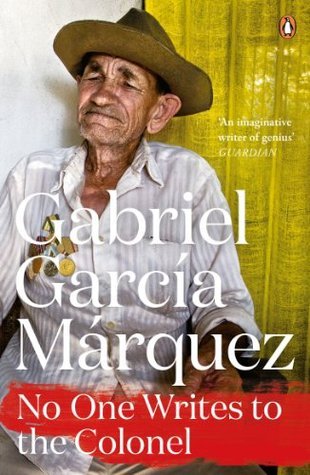What do you think?
Rate this book


Nobel Laureate Gabriel Garc�a M�rquez, author of One Hundred Years of Solitude and Love in the Time of Cholera, tells a powerful tale of poverty and undying hope in his moving novel No One Writes to the Colonel.
'The Colonel took the top off the coffee can and saw that there was only one spoonful left'
Fridays are different. Every other day of the week, the Colonel and his ailing wife fight a constant battle against poverty and monotony, scraping together the dregs of their savings for the food and medicine that keeps them alive. But on Fridays the postman comes - and that sets a fleeting wave of hope rushing through the Colonel's ageing heart.
For fifteen years he's watched the mail launch come into harbour, hoping he'll be handed an envelope containing the army pension promised to him all those years ago. Whilst he waits for the cheque, his hopes are pinned on his prize bird and the upcoming cockfighting season. But until then the bird - like the Colonel and his wife - must somehow be fed. . .
'M�rquez writes in this lyrical, magical language that no one else can do' Salman Rushie
'Masterly. He dazzles us with powerful effect' New Statesman
'One of this century's most evocative writers' Anne Tyler
As one of the pioneers of magic realism and perhaps the most prominent voice of Latin American literature, Gabriel Garc�a M�rquez has received international recognition for his novels, works of non-fiction and collections of short stories. Those published in translation by Penguin include Autumn of the Patriarch, Bon Voyage Mr. President, Chronicle of a Death Foretold, Collected Stories, The General in his Labyrinth, In Evil Hour, Innocent Er�ndira and Other Stories, Leaf Storm, Living to Tell the Tale, Love in the Time of Cholera, Memories of My Melancholy Whores, News of a Kidnapping, Of Love and Other Demons, The Story of a Shipwrecked Sailor and Strange Pilgrims.
73 pages, Kindle Edition
First published January 1, 1961
It was seven-twenty when he finished winding the clock. Then he took the rooster into the kitchen, tied it to a leg of the stove, changed the water in the can, and put a handful of corn next to it. A group of children came in through a hole in the fence. They sat around the rooster, to watch it in silence.
‘You can’t eat hope,’ the woman said.
‘You can’t eat it, but it sustains you,’ the colonel replied.
„Am aşteptat cît a fost de aşteptat, îi spune soţia. Trebuie să aibă cineva o răbdare de bou, ca tine, ca să poată aştepta o scrisoare timp de cincisprezece ani”.
